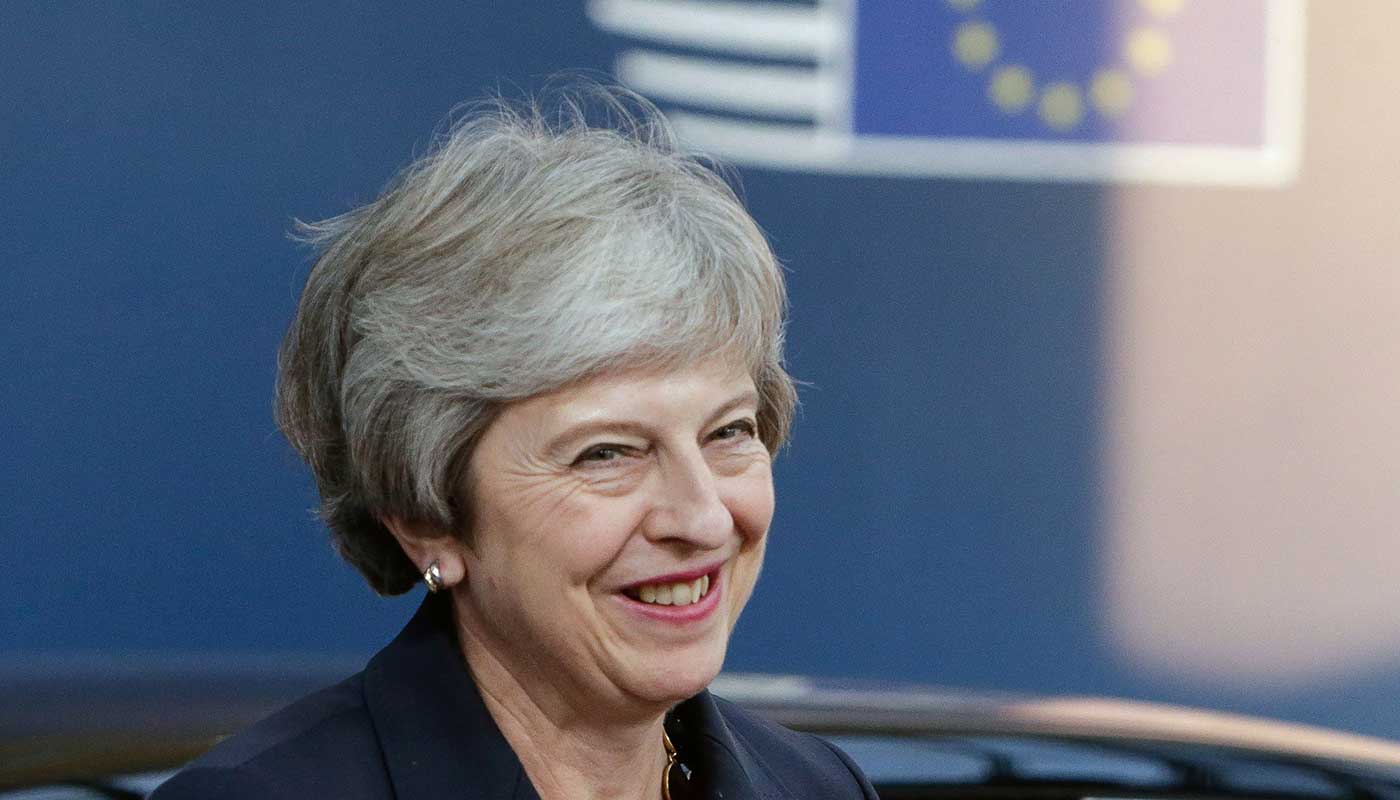Will the Brexit transition period be extended?
Theresa May appears willing to take more time as negotiations stall over the Irish border

A free daily email with the biggest news stories of the day – and the best features from TheWeek.com
You are now subscribed
Your newsletter sign-up was successful
Theresa May has signalled that the UK could seek to extend the Brexit transition period to allow more time for negotiations over key sticking points.
A move to delay the transition out of the European Union would leave the UK having to abide by the rules set by the bloc, without having any say in them, and would also require payment of billions of pounds into the EU’s budget.
In her speech in Brussels yesterday, the UK prime minister called on other EU members for “courage, trust and leadership” from both sides – however, she failed to meet the earlier demand of European Council President Donald Tusk for “new facts” that could re-start negotiations.
The Week
Escape your echo chamber. Get the facts behind the news, plus analysis from multiple perspectives.

Sign up for The Week's Free Newsletters
From our morning news briefing to a weekly Good News Newsletter, get the best of The Week delivered directly to your inbox.
From our morning news briefing to a weekly Good News Newsletter, get the best of The Week delivered directly to your inbox.
“We have shown we can do difficult deals together constructively. I remain confident of a good outcome. The last stage will need courage, trust and leadership on both sides,” May said.
The Guardian reports that May seemed “unable to persuade her audience that she could back her conciliatory tone with a substantial offer”, drawing the ire of Antonio Tajani, President of the European Parliament.
“I did not pick up anything substantially new in terms of content,” he said. “I was listening to Mrs May. It was the tone of someone who wants to reach an agreement [but] there is no change in content.”
The main sticking point in the negotiations remains “amid differences over how to prevent a hard border between Northern Ireland and the Irish Republic”, says the BBC.
A free daily email with the biggest news stories of the day – and the best features from TheWeek.com
The UK has agreed in principle to the idea of a backstop that would prevent the need for customs checks at the border, but has not reached an agreement on what form that would take, and how long it would last.
-
 What are the best investments for beginners?
What are the best investments for beginners?The Explainer Stocks and ETFs and bonds, oh my
-
 What to know before filing your own taxes for the first time
What to know before filing your own taxes for the first timethe explainer Tackle this financial milestone with confidence
-
 The biggest box office flops of the 21st century
The biggest box office flops of the 21st centuryin depth Unnecessary remakes and turgid, expensive CGI-fests highlight this list of these most notorious box-office losers
-
 How corrupt is the UK?
How corrupt is the UK?The Explainer Decline in standards ‘risks becoming a defining feature of our political culture’ as Britain falls to lowest ever score on global index
-
 The high street: Britain’s next political battleground?
The high street: Britain’s next political battleground?In the Spotlight Mass closure of shops and influx of organised crime are fuelling voter anger, and offer an opening for Reform UK
-
 EU-Mercosur mega trade deal: 25 years in the making
EU-Mercosur mega trade deal: 25 years in the makingThe Explainer Despite opposition from France and Ireland among others, the ‘significant’ agreement with the South American bloc is set to finally go ahead
-
 Biggest political break-ups and make-ups of 2025
Biggest political break-ups and make-ups of 2025The Explainer From Trump and Musk to the UK and the EU, Christmas wouldn’t be Christmas without a round-up of the year’s relationship drama
-
 Who is paying for Europe’s €90bn Ukraine loan?
Who is paying for Europe’s €90bn Ukraine loan?Today’s Big Question Kyiv secures crucial funding but the EU ‘blinked’ at the chance to strike a bold blow against Russia
-
 ‘The menu’s other highlights smack of the surreal’
‘The menu’s other highlights smack of the surreal’Instant Opinion Opinion, comment and editorials of the day
-
 Moscow cheers Trump’s new ‘America First’ strategy
Moscow cheers Trump’s new ‘America First’ strategyspeed read The president’s national security strategy seeks ‘strategic stability’ with Russia
-
 Is a Reform-Tory pact becoming more likely?
Is a Reform-Tory pact becoming more likely?Today’s Big Question Nigel Farage’s party is ahead in the polls but still falls well short of a Commons majority, while Conservatives are still losing MPs to Reform